Deep frying a turkey has become a popular cooking method for many families during the holidays. The end result is a turkey that is moist, tender and full of flavor. However, deep frying anything involves working with large quantities of hot oil, so safety should always be the number one priority. One of the most common questions new turkey fryers have is whether or not you should cover the pot during the cooking process.
Why You Should Not Cover the Pot
The short answer is no – you should never cover the pot when deep frying a turkey. There are a few important reasons why leaving the pot uncovered is crucial:
-
Covering the pot can create pressure build up from steam, leading to hot oil spills or eruptions when the lid is removed. This can cause serious burns.
-
A covered pot makes it harder to monitor the turkey as it cooks You can’t get a good visual on doneness or any issues.
-
If a fire starts in an uncovered pot, it is easier to notice right away and address it. A lid can trap flames and allow it to grow
-
Leaving the pot open allows steam and moisture to vent naturally from the cooking oil. A lid traps it inside.
-
An open pot also lets you add and stir seasoning, turn the turkey, and tend to frying much more safely.
So for safety and ideal results, it is essential to leave your pot of hot oil uncovered when deep frying your turkey.
Key Steps for Deep Frying a Turkey
While keeping the pot uncovered is important, there are a lot of other key steps you need to take to deep fry a turkey safely:
-
Use an outdoor propane turkey fryer and set up in an open area away from any structure or combustibles.
-
Calculate the exact right amount of peanut oil needed based on turkey size – generally 3-5 gallons. Too little oil is dangerous.
-
Thoroughly thaw turkey 1-2 days in fridge before frying. Partial frozen turkey can cause splattering.
-
Dry turkey completely with paper towels before slowly lowering into the 350°F oil with fryer basket.
-
Once submerged, maintain oil temp and cook 3-4 minutes per pound, no lid.
-
Monitor closely and flip halfway through. Turkey is done when it reaches 165°F internally in thigh.
-
When finished cooking, slowly lift turkey from oil and let drain/rest before serving.
-
Allow used oil to fully cool before straining and reusing or discarding.
Handy Turkey Fryer Tips
If you follow safety measures and recommended turkey fryer guidelines, you’ll turn out a restaurant-quality bird. Here are some handy tips:
-
Inject turkey with melted butter and broths for extra moisture and flavor.
-
Coat the turkey skin liberally with dry rub seasoning blends for crispy, flavorful skin.
-
Use a thermometer to verify oil temp before adding turkey. Maintain proper temps.
-
Allow cooked turkey to rest 20+ minutes before slicing for juicier meat.
-
Mix herbs, spices, citrus into the cooking oil for infused flavor.
-
Have a fire extinguisher on hand just in case of emergency flare ups.
-
Fry turkey wings, drumsticks after the bird for bonus seasoned oil.
-
Research oil recycling options in your community or proper disposal methods.
Is Eating Fried Turkey Unhealthy?
Because it is cooked immersed in hot oil, some people assume deep fried turkey is high in fat and calories. However, studies have shown that when done properly, deep fried turkey can be just as healthy as oven roasted:
-
The high heat quickly seals in moisture and flavor without adding significant extra fat.
-
The skin gets ultra crispy from frying without needing to be coated in butter or oil.
-
If fresh high quality peanut oil is used, the turkey absorbs very little oil when cooked.
-
The meat stays juicy and tender with less overall cooking time compared to roasting.
So while it may sound decadent, deep fried turkey is not necessarily unhealthy. When prepared safely with “best practices”, it can be a nutritious and delicious holiday centerpiece!
Is It Worth the Time and Effort?
Once you’ve perfected the frying process, deep fried turkey can definitely be worth the preparation. Here are some of the key benefits:
-
Entire turkey cooks in under an hour – much faster than roasting.
-
No oven space needed – great for small or full holiday gatherings.
-
Meat is extremely moist and tender with crispy seasoned skin.
-
Kids and guests love the uniqueness factor of fried turkey.
-
Highly convenient method for feeding large groups.
While there are more safety steps involved, many home cooks feel the glory of the golden fried turkey is well worth the effort. When handled with care, it can quickly become your new favorite holiday cooking tradition.
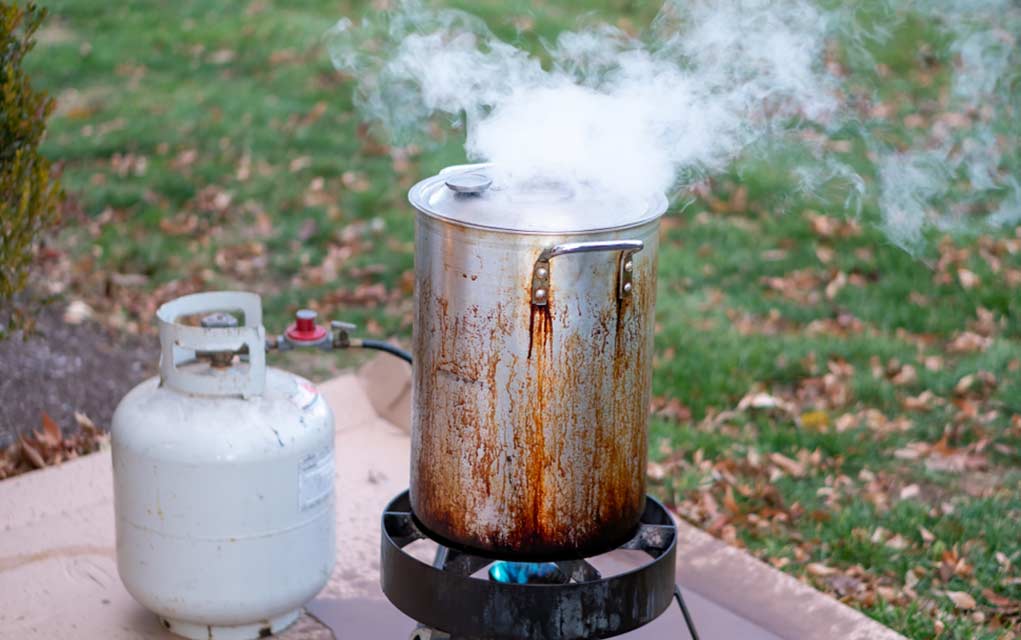
Step 3: Prepare the Fryer
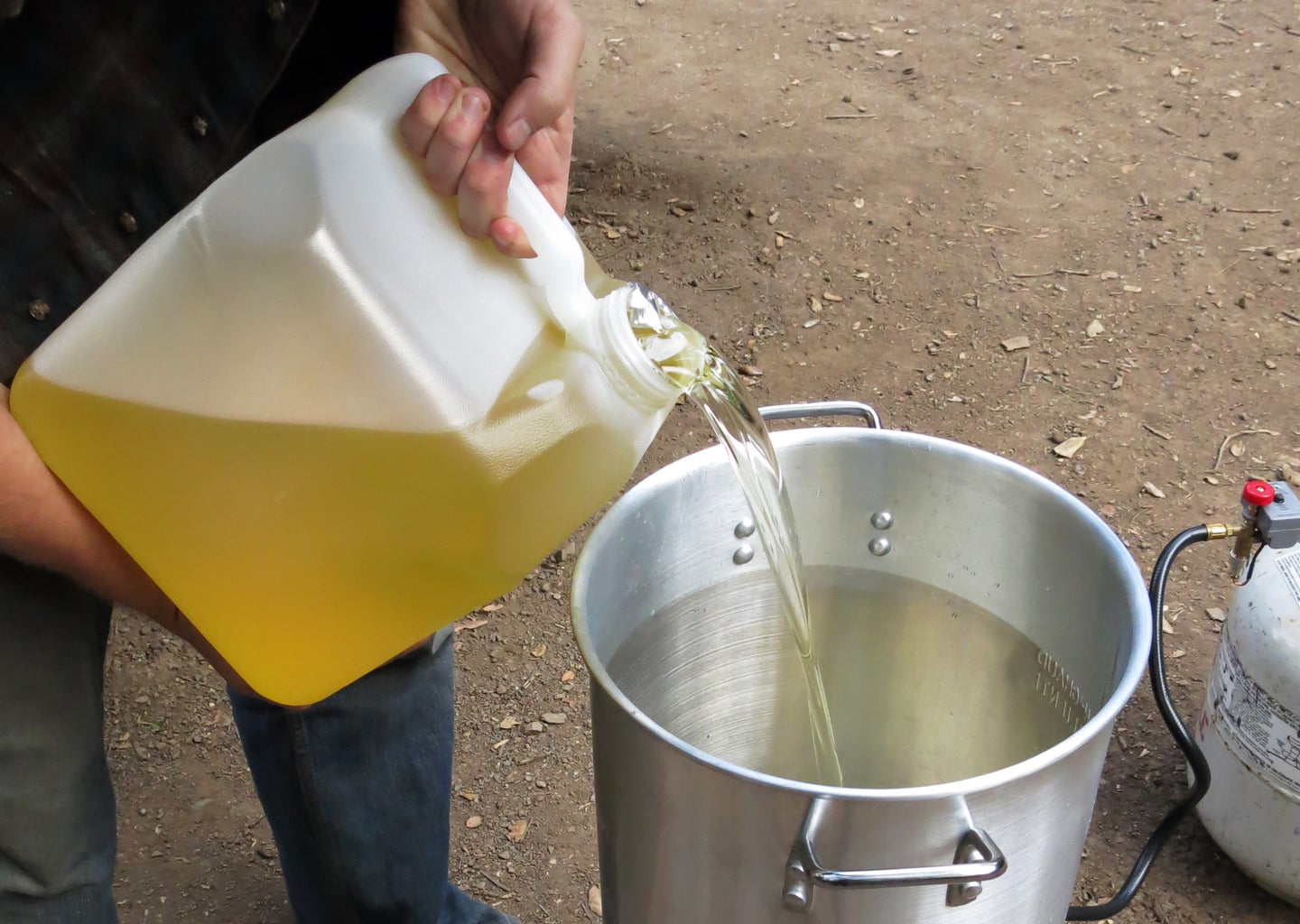
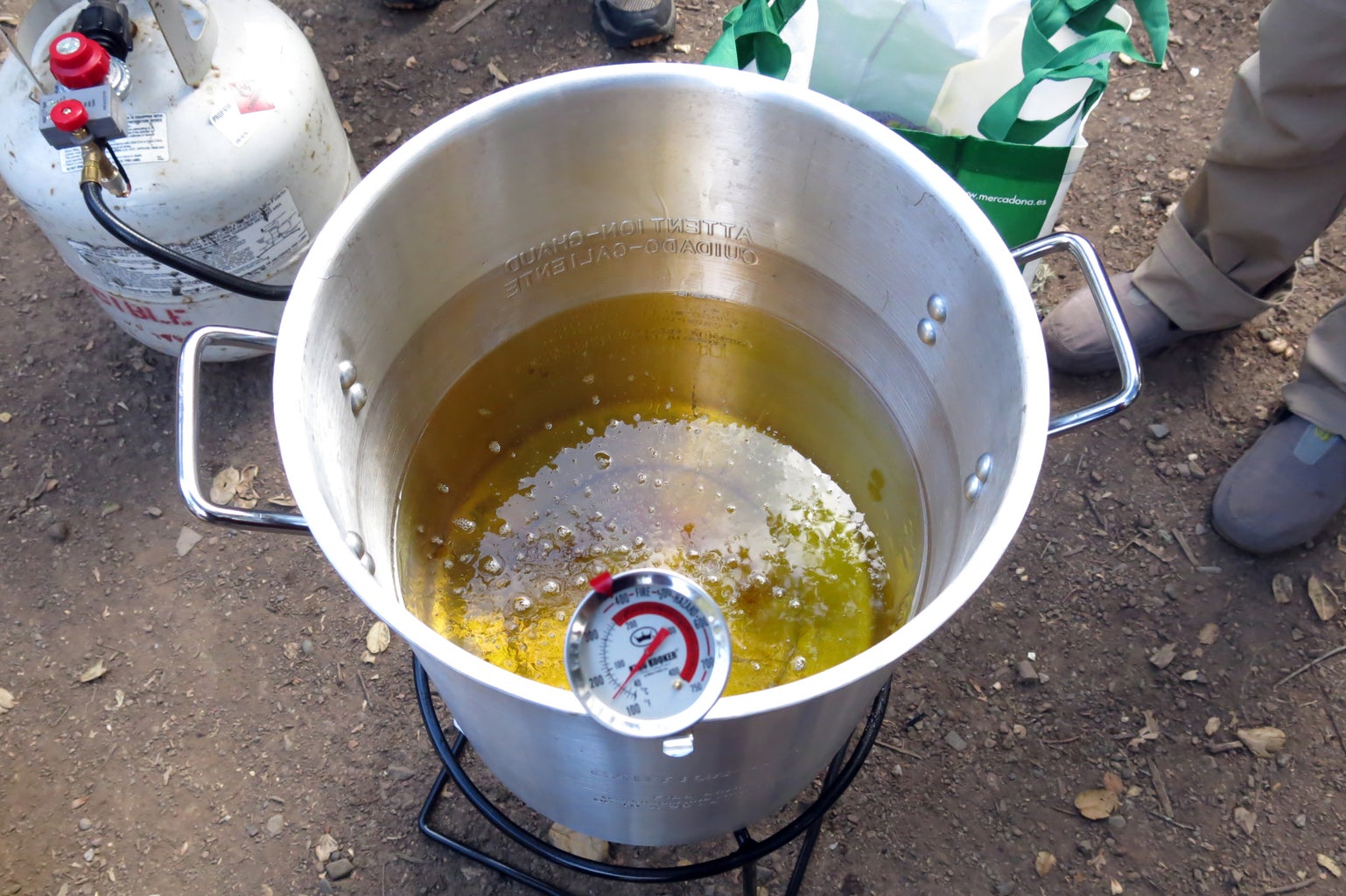
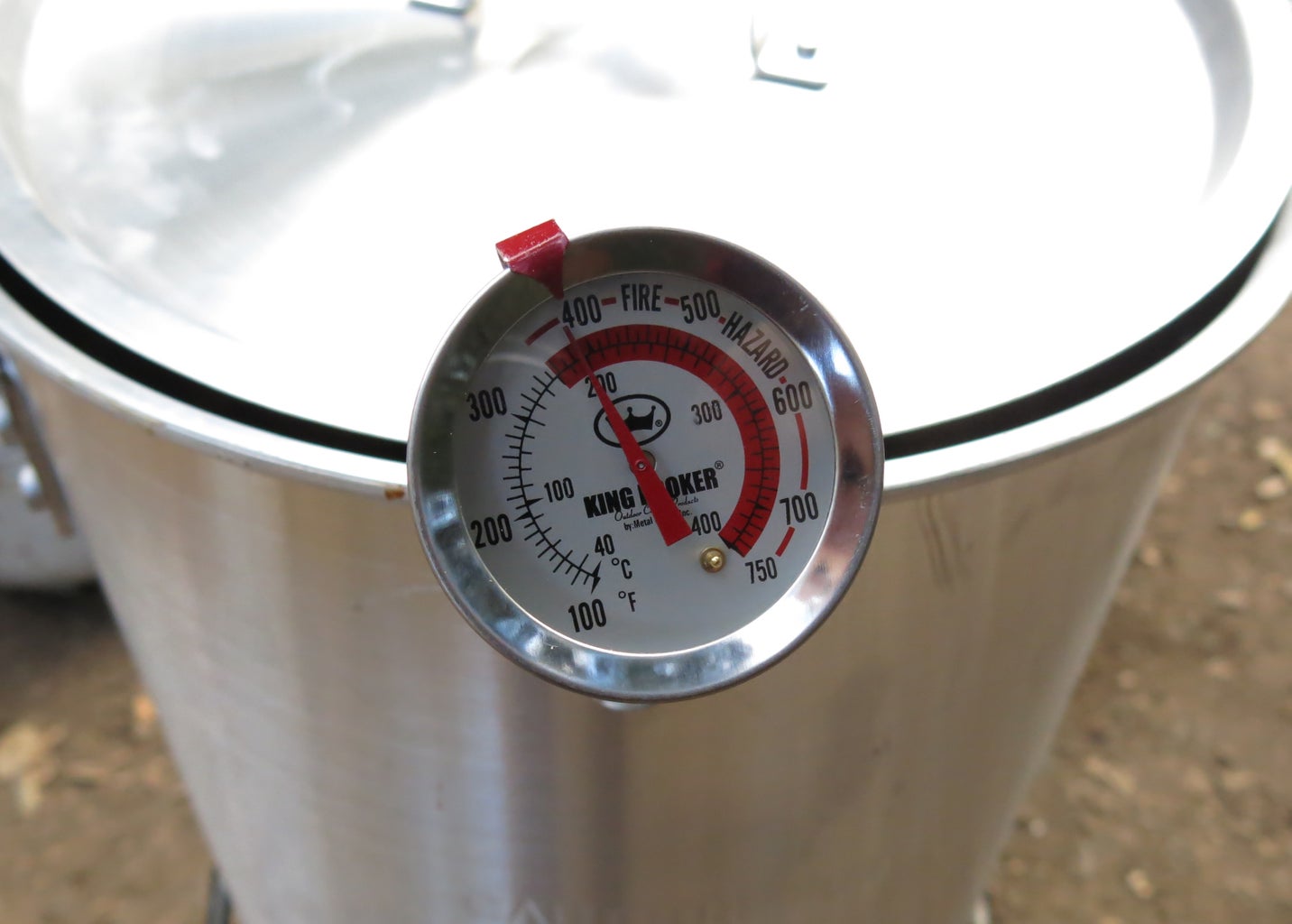
Step 2: What You Need
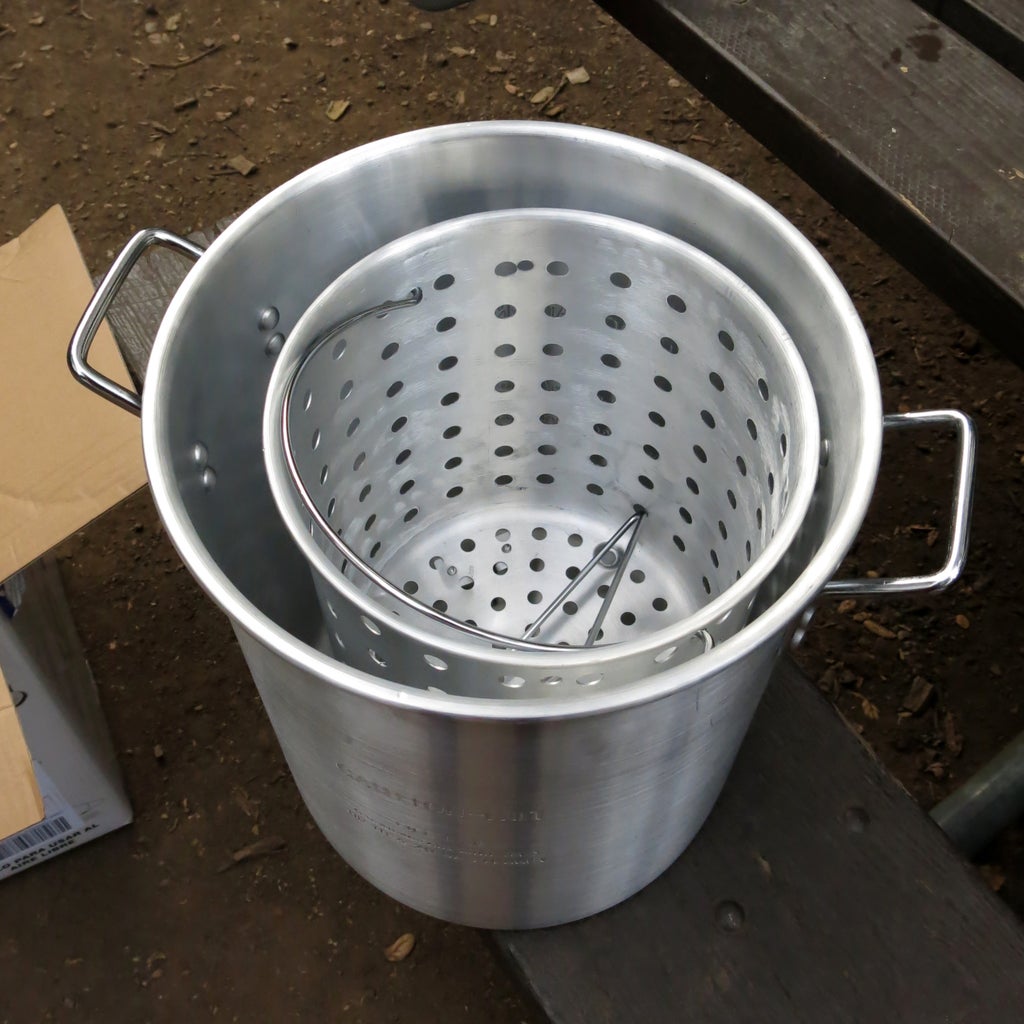
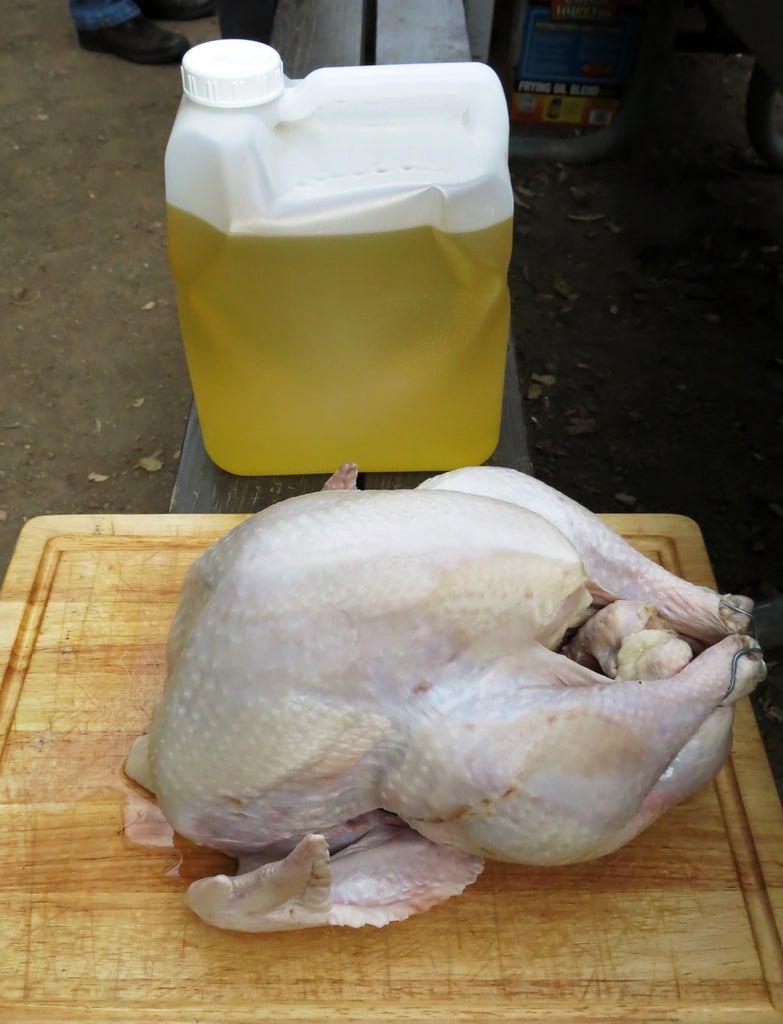
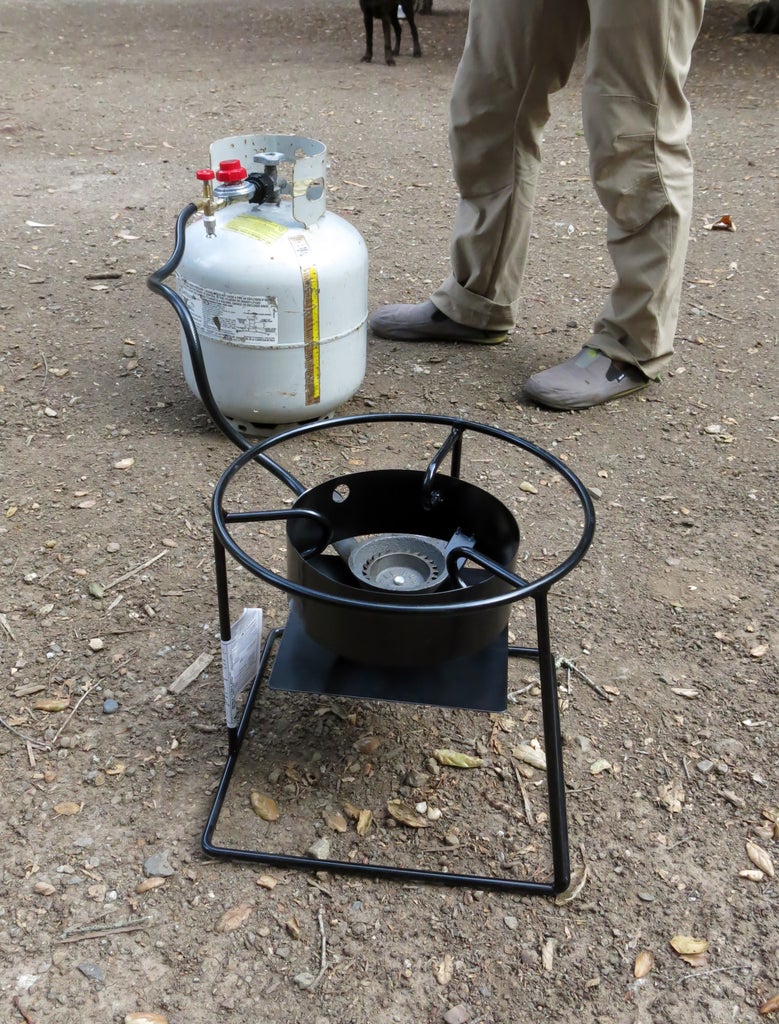
How to Deep Fry a Whole Turkey – Step by Step Tutorial by @BigPaulOnTheGrill
FAQ
Do you put the lid on the pot when deep-frying a turkey?
Keeping the lid on will increase the chances of creating a grease fire exponentially, most will advise you not to fry a turkey because even with the proper knowledge, experience and preparation it is very dangerous.
Do you deep fry a turkey, covered or uncovered?
When cooking a turkey, it is recommended to cover it for most of the cooking time to prevent it from drying out. However, towards the end of the cooking process, it is advised to remove the cover to allow the skin to crisp up (1).
Should you cover a pot when deep-frying?
Keep the kiddos out of the kitchen while frying. Crowding the kitchen can be just as bad as crowding your pot. Don’t place the lid on the pot when frying.
Is it better to deep fry with the lid on or off?
Covering the pot keeps steam from escaping, which can trap delicious aromas and reduce cooking time by allowing foods to steam. However, it is important to leave the lid off the pan during frying, searing, and deep-frying, as moisture interferes with creating a caramelized, crispy surface on these foods.
What oil should I use for deep frying a Turkey?
Dry the pot completely before pouring in the oil. What’s the best oil for deep-frying turkey? Use peanut oil for frying the bird. Peanut oil gives the best flavor and has a high smoke point. You can also use half peanut, and half vegetable oil. How do I season a deep-fried turkey?
What happens if you fry a Turkey in a pot?
Surely, if that pot holds a chicken, it can hold a turkey and five gallons of oil, you think. But when it comes time to fry, you either can’t get the oil hot enough or you try to cram the turkey into a too-small pot, causing an oil spill that catches fire. You’ve now become one of those YouTube horror stories.
How much does it cost to deep fry a Turkey?
You can get a kit for deep-frying turkey that includes a 30-quart pot, a fryer burner, and regulator hose, plus a poultry lifter and a long-stemmed thermometer for around $80. This set will guarantee that you have plenty of room for your turkey and the oil, plus the tools you need to get the turkey into the oil safely.
How do you cook a Turkey in a frying pot?
Once you have bought your turkey, place it inside your frying pot and fill the pot up with water until the bird is covered. Use can use your outdoor yard hose or a bathtub to make this easier than trying to do it in your kitchen sink (unless you have a big and deep sink).
What happens if you fry a Turkey in a frying pan?
The icy bird creates a ton of steam that bubbles the oil over the sides of the pot and into the fire of the fryer burner below. From there the fire can spread and catch the propane tank on fire as well. Wet turkeys also cause oil to splatter, which can cause burns and fires.
Should you Thaw a deep fried turkey?
Proper thawing and dry brining makes for a more delicious turkey, to be sure, but it also ensures that you won’t have lots of steam and splatter when you lower the turkey into the hot oil. 4. Overfilling the pot with oil. When it comes to deep-fried turkey, more oil isn’t necessarily better.
